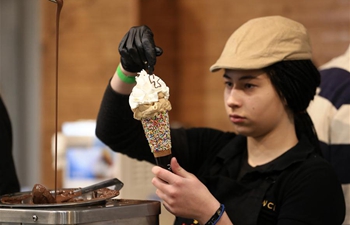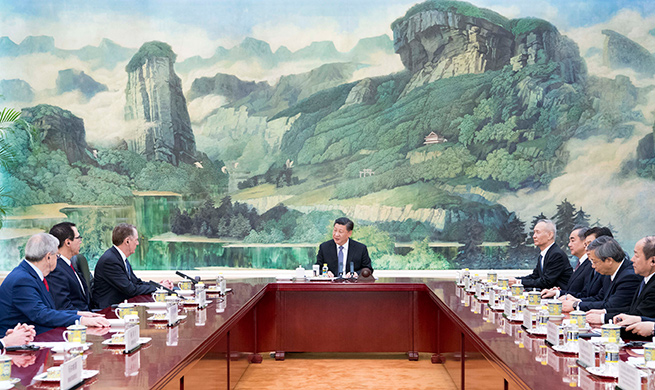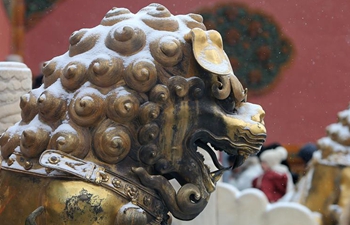CHICAGO, Feb. 14 (Xinhua) -- As a tiny insect called Asian citrus psyllid is spreading an incurable bacterium by infecting millions of acres of orchards in the United States, a team of agriculture researchers are exploring the possibility of breeding genetically modified (GM) trees that are resistant to the disease.
Given the controversy over the safety of genetically modified food, the researchers surveyed a representative sample of U.S. consumers and conducted focus groups to better understand American consumers' attitudes about GM food and agriculture.
According to a news release posted on the website of the University of Illinois (UI) Wednesday, about half of the 1,050 people who responded to the survey had positive attitudes toward GM science, nearly 37 percent of the consumers surveyed felt neutral about GM science, and 14 percent had negative perceptions of it.
Most of the people who were receptive to GM science were white males who were millennials or younger, the survey indicated. They were highly educated, most holding a bachelor's degree or higher, and affluent, with annual incomes of 75,000 dollars or greater.
Women, on the other hand, constituted 64 percent of the group with negative feelings about GM science. Baby boomers and older adults were nearly twice as likely to fall into this group. People in this group were also less educated: about half reported some college but no degree.
The findings were published recently in the journal Science Communication.
The survey also assessed respondents' willingness to share their opinions about GM science, their current perceptions of others' views on the topic and what they expected public opinion about it to be in the future.
By contrast, people surveyed who rejected GM science were more likely to express their opinion when they believed others held the opposite view. But people with positive feelings about GM technology were less likely to speak out when they believed others supported it too.
"The way others express their attitude has an indirect effect on what our attitude ends up being," said UI agricultural communications professor Taylor K. Ruth. "We might fall in the actual majority opinion about some of these complex topics."
GM science is among the complex challenges that some researchers call "wicked issues": societal problems that are often poorly understood and fraught with conflict. "We must have these conversations about these wicked issues," Ruth said. "If scientists let other people who don't have a scientific background fill the void, we're not going to be a part of that conversation and help people make decisions based upon all of the facts."

















